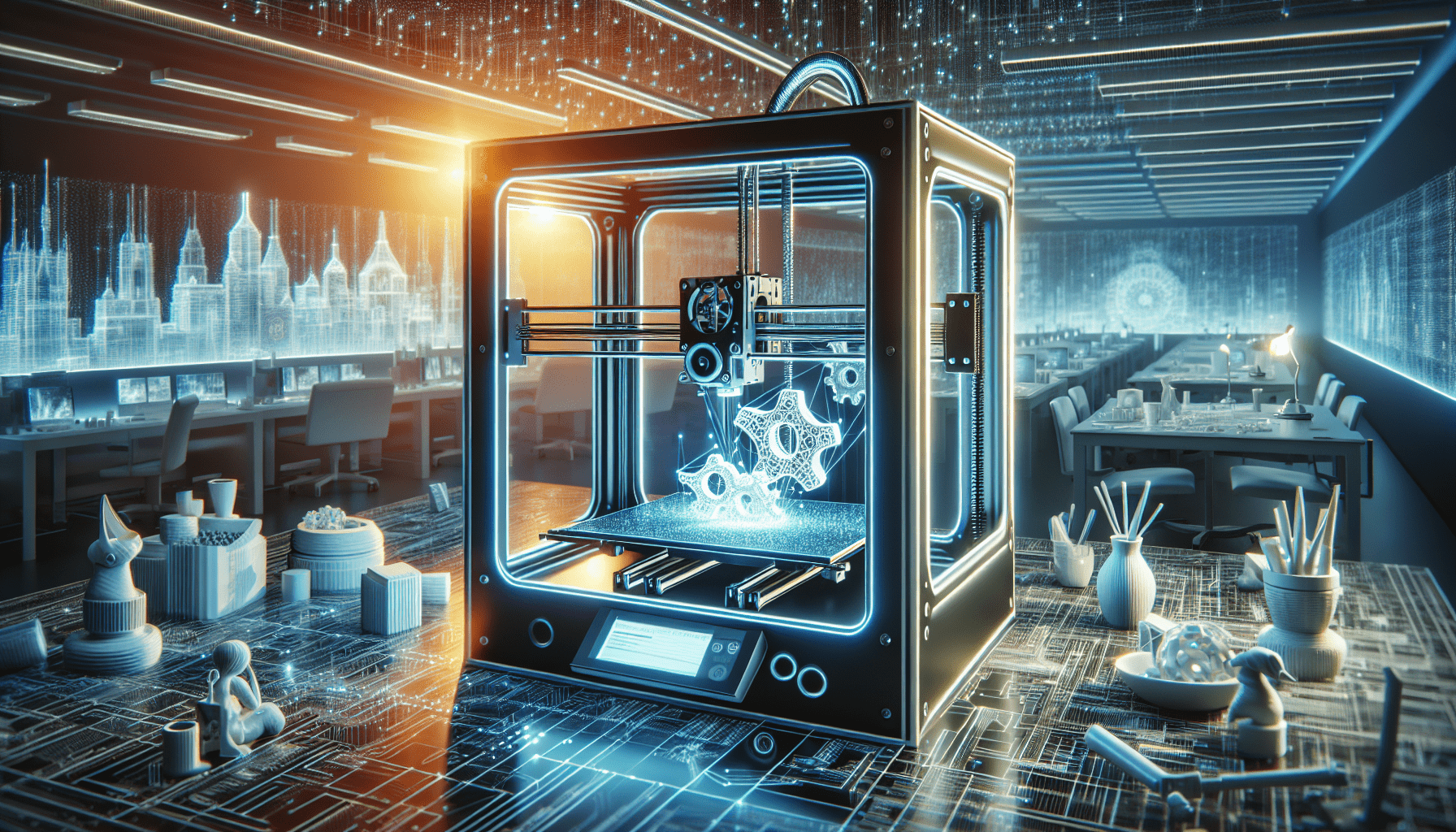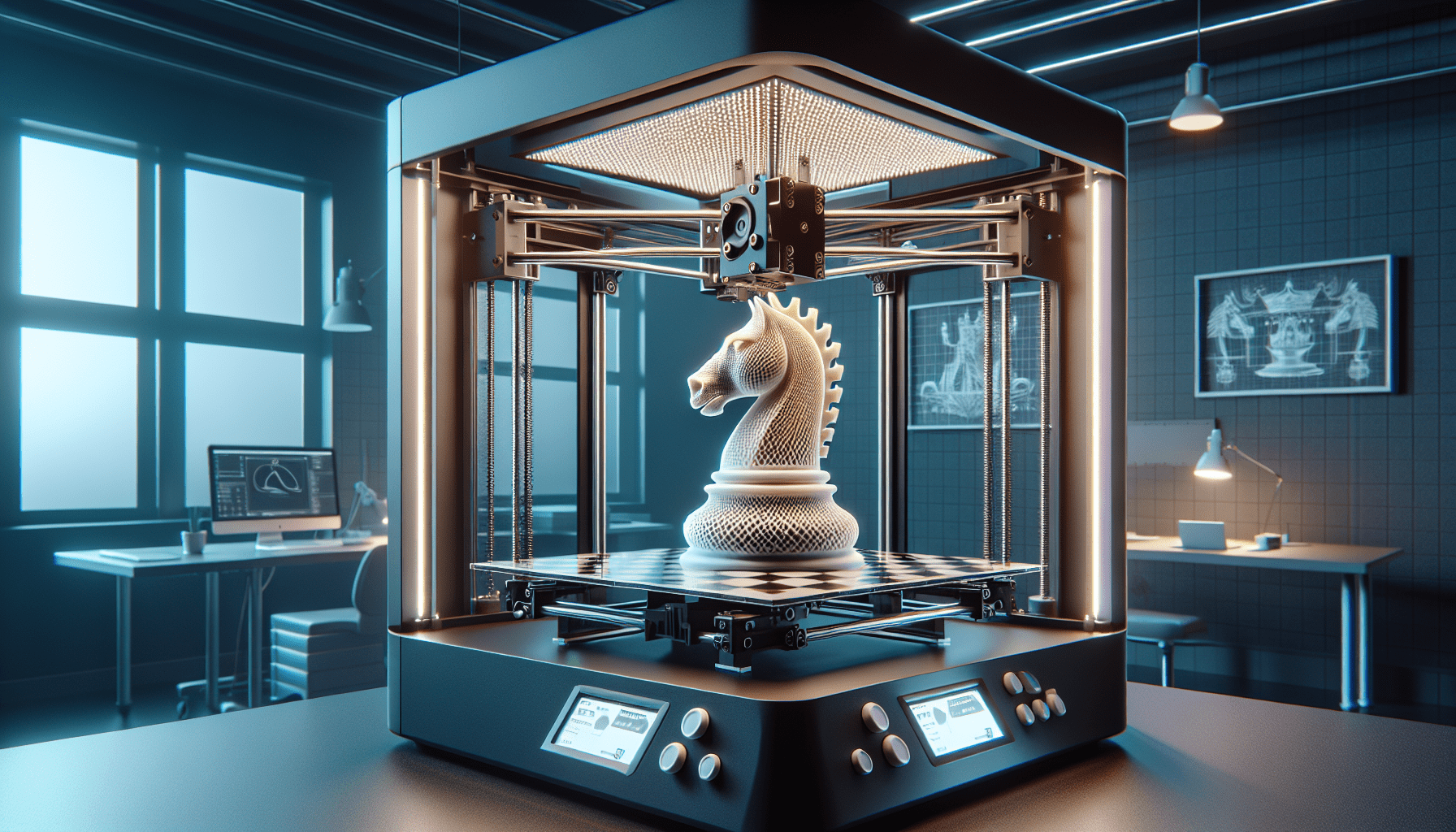Upgraded Tina2S 3D Printer, HEPHI3D 3D Printers WiFi Cloud Printing Auto Bed Leveling, Fully Assembled Mini 3D Printers for Beginners, Silent Print, Fully Open Source DIY 3D Printers for Home, School
$195.49 (as of June 18, 2025 23:32 GMT +00:00 - More infoProduct prices and availability are accurate as of the date/time indicated and are subject to change. Any price and availability information displayed on [relevant Amazon Site(s), as applicable] at the time of purchase will apply to the purchase of this product.)Hey there! In today’s video, we have an Ultimaker Cura Tutorial for you. If you’re new to the world of 3D printing, this tutorial is perfect for you. We’ll be covering everything from downloading Cura to adjusting settings like layer height, infill, speed, and temperature. We’ll also discuss features like supports, plate adhesion, travel, and previewing prints. Whether you’re a beginner or a veteran in 3D printing, this tutorial has got you covered. So grab your 3D printer and join us as we dive into the basics of Ultimaker Cura!
Downloading Ultimaker Cura
To begin using Ultimaker Cura, you’ll need to download the software from the Ultimaker website. Head over to the website and look for the ‘Download’ button. Click on it to start the download process.
Once the download is complete, you can proceed with installing Cura on your computer. Locate the downloaded file and run the installer. Follow the on-screen instructions to complete the installation.
Selecting a Printer
After installing Cura, you can launch the software to start setting up your printer. Make sure your printer is connected to your computer either through USB or Wi-Fi.
In Cura, navigate to the printer setup section and select the appropriate printer model from the list of supported brands and models. If your printer is not listed, you can manually add it by inputting the required information.
Once your printer is selected, you can choose the print bed size that matches your printer’s specifications. This ensures that your models will fit properly on the print bed without any issues. Additionally, adjust the print volume and gantry height to match your printer’s capabilities.

Adjusting Print Settings
To achieve the desired print quality and performance, you’ll need to adjust various print settings in Ultimaker Cura. Access the ‘Print Settings’ menu to make these adjustments.
One important setting to consider is the layer height, which determines the thickness of each layer in your print. Choosing an appropriate layer height is crucial for achieving the desired level of detail and print speed.
Additionally, you can adjust the wall thickness to control the strength and durability of your prints. The infill density and pattern settings allow you to control the amount and structure of material inside your prints.
Print speed and travel speed settings determine how fast the printer moves during the printing process. Adjusting these speeds can affect the overall print quality and time required to complete a print.
Controlling the print temperature is vital for ensuring proper material flow and adhesion. Different materials have specific temperature requirements, so be sure to set the appropriate temperature for your chosen filament.
Advanced Features
Ultimaker Cura offers several advanced features that can enhance your printing experience. Enabling retraction helps prevent filament dripping and unwanted oozing during prints. This feature is especially useful when dealing with stringing issues.
Utilizing Z hop can lift the nozzle slightly during certain movements to avoid collisions with previously printed parts. This can be helpful in reducing the chances of damaging delicate prints.
Optimizing print cooling is crucial for achieving high-quality prints. Adjust the fan speed settings to ensure proper cooling of the printed layers, especially when dealing with overhangs or intricate designs.
Understanding support structures is essential when printing objects with overhangs. Ultimaker Cura provides the option to generate support structures that act as temporary scaffolding to support these challenging areas during printing.
Adjusting build plate adhesion settings can prevent prints from detaching or warping during the printing process. Explore different adhesion options to find the best fit for your specific prints.
Feel free to explore other advanced options in Ultimaker Cura to further customize your printing experience. Depending on your needs and preferences, you may find additional features and settings that can enhance your prints.

Previewing and Analyzing Prints
Before printing a model, it’s essential to preview and analyze how it will be printed. Import your 3D model into Ultimaker Cura and adjust its position and scale using the provided tools.
Utilize the ‘Preview’ feature in Cura to visualize the sliced layers of your model. This allows you to see how the print will progress layer by layer. Take this opportunity to check for any potential issues or errors in the slicing process.
Cura also provides estimates for print time and filament usage. Take note of these values to ensure you have enough time and filament on hand for your prints.
Saving and Exporting Sliced Files
Once you’re satisfied with the settings and preview of your model, it’s time to save and export the sliced file for printing. Make sure you have a removable drive or SD card ready for this step.
Prepare the removable drive or SD card and connect it to your computer. In Ultimaker Cura, select the ‘Export’ or ‘Save to removable drive’ option. Follow the prompts to save the sliced print file to the desired location.
This step ensures that you have a portable file ready to transfer to your printer. It allows you to disconnect your computer and easily transfer the file to your printer’s memory for printing.
Remember to keep the sliced file for future use if you plan on printing the same model again. It saves you time by not having to go through the entire slicing process again.

Additional Resources
If you’re looking for more information or support regarding Ultimaker Cura or 3D printing in general, there are plenty of resources available.
Explore online forums and communities dedicated to 3D printing. These platforms provide a wealth of knowledge, tips, and troubleshooting advice from experienced users.
Consider following Callum Prints on Instagram for additional content and insights into the world of 3D printing. They may share tutorials, tips, and showcase their own prints, which can inspire and inform your own projects.
Don’t forget to search for tutorial videos on platforms like YouTube. Many content creators specialize in 3D printing and offer detailed guides on using Ultimaker Cura and other software. These videos can provide step-by-step instructions and visual demonstrations that can complement what you’ve learned in this tutorial.
Conclusion
In conclusion, this tutorial aimed to provide a comprehensive guide to using Ultimaker Cura for 3D printing. We covered the essential steps of downloading Cura, selecting a printer, adjusting print settings, utilizing advanced features, previewing and analyzing prints, and saving and exporting sliced files.
Whether you’re a beginner or a veteran in the world of 3D printing, Ultimaker Cura offers a versatile and user-friendly platform for achieving high-quality prints. Remember that customization and experimentation with settings are crucial for optimizing your prints.
We encourage you to explore Ultimaker Cura further and continue learning and improving your 3D printing skills. With practice and understanding, you can unlock the full potential of this powerful slicing software and create impressive and detailed 3D prints. Happy printing!
Subscribe to our YouTube channel for more tutorials: here
To get started, download Ultimaker Cura from this link: here
Hey there! Welcome to our new video tutorial! It’s been a while since our last upload, but we’re back now and will be bringing you more informative and entertaining content soon. Today, we have a Cura Tutorial just for you!
Cura is a beginner-friendly slicing software designed for 3D printing. It’s suitable for both beginners and experienced users. In this tutorial, we’ll cover the following topics: downloading Cura, selecting a printer, adjusting layer height, infill options, speed settings, temperature controls, supports, plate adhesion, travel settings, downloading the final .gcode file, and previewing your prints.
Don’t forget to follow us on Instagram: @callum.prints
See you in our next video!
Mentioned Keywords: CIR Inventions, callum harvey-slager, isaac urquidi, ian anthony, ethan wenthe, how to use cura, ultimaker cura tutorial, how to use ultimaker cura, basic slicing software, how to use cura slicing software, best slicing software, 3d printer slicer, 3d printing slicer tutorial, cir inventions 3d printing, cir inventions tutorial, ultimaker cura tutorial for beginners, ultimaker cura, ultimaker cura 4.8 tutorial, cura tutorial 2021, ultimaker cura tutorial 2021











